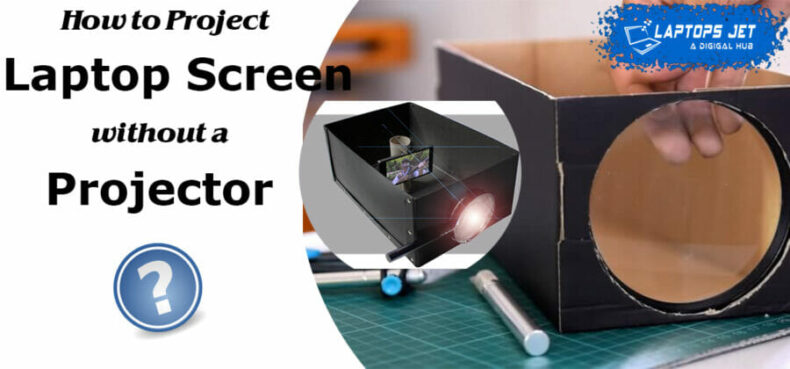The 8 steps of How to project laptop screen to wall without projector | |
This projector is useful for people who want to show presentations on their laptops. This method allows showing the image of a computer on the wall by projecting it onto it.
How to project Laptop screen to the wall without Projector. If you have a laptop or desktop computer, this might be something useful. Do you want to create a presentation or show a video on a large screen, but don’t have a projector handy?
No worries! With the help of this simple hack, you can easily project images from your laptop onto any smooth surface (including walls) and share them with friends.
You may be wondering how to project a laptop screen to the wall without a projector. It seems a little counterintuitive but this is a very useful trick that allows you to display a laptop screen on your wall, so you can show your presentations to your audience.
The world of technology is changing so fast that we are always being confronted with new gadgets, devices, and gizmos that keep us up-to-date on the latest trends and innovations.
Technology has become so essential to our everyday lives that it is no longer only a part of our work environment but has also become an integral part of our leisure activities and home comforts. As a result, it has also become a major part of our education system.
It’s a good idea to set aside a budget to buy a projector if you plan to watch movies at a friend’s house. However, you may already have a home theater setup where you can protect your laptop’s display onto a large wall screen, but most home theater systems don’t allow you to switch back and forth between projected video and your laptop screen.
This can be a problem when you want to change channels on the television during a movie, or simply when you’d like to multitask and watch videos on your laptop screen while browsing the internet. If you want to protect your laptop’s screen from a wall using a projector, you may be interested in these new projectors/laptop screens/tablet screens.
Why do you want to project your laptop screen?
With smartphones and tablets, this is becoming easier than ever to see the screen of the device you’re working on.
But the problem with projecting your laptop screen into the room is that the image doesn’t match up with the real-world scale of the room and the objects in it. And that’s why you don’t want to project your screen onto any wall. A projector screen is a perfect solution for this.
There are many reasons why we share images of ourselves, but the most obvious is to show people what we look like. While we may be self-conscious about our appearances, the reality is that sharing photos of ourselves online actually helps us build up a network of positive connections with others, rather than negative ones.
It’s a strategy that’s been shown to boost our mood, increase our happiness, and lower our stress levels. In fact, a study by researchers at Stanford University shows that posting a photo of ourselves on social networks increases our sense of social connection.
Also Read. Why Does My Laptop Sound Like A Jet Engine | Laptopsjet
The process to start Making an Easy DIY Projector
It includes all the parts necessary for the projector, including the mounting hardware. The only thing you need to do is to screw the back panel of the projector onto the wall.
I had been waiting for years to see how the “DIY projector” would turn out. After using a regular computer projector for several months, I knew that something had to give.
I was starting to notice my screen growing blurry and the image becoming distorted. My eyes were getting tired and the strain on my neck was starting to show. So I decided that I needed to make a new one. I purchased an old computer display that I found online, cut the back off, and wired it into a computer. Then I took some cheap reflective glass and taped it to the inside of the front cover. And I was ready to rock!
Before starting the process of how to project a laptop screen to a wall without a projector, you need to prepare all the materials first. Here are the items you have to prepare for your inexpensive do-it-yourself projector. This is a projector that needs a separate power source (wall wart or computer battery) to function.
There is a switch on the top left corner of the case. Turn the switch ON to turn on the light.
Tools and Materials for Preparing Projector
- Tape for join box part
- Pencil to draw
- Laptop for video source
- Glue stick joint box
- Smartphone alternative source for Laptop
- Precision knife for cutting box
- Cardboard box
- Black matte paper for a control backlight effect
- Magnifying lens, size according to the requirement for focus
1. Check the Size of the Box and Mirror for the projector
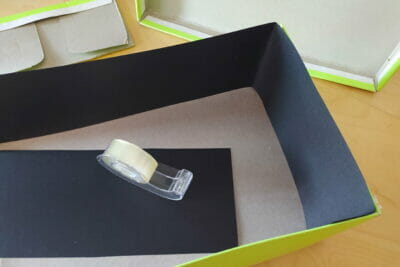
How to project laptop screen to wall without projector. Once you know where the projector will be placed in your space, check to make sure that the box and mirror it will be displayed in are large enough.
If you want a large image, make sure that the mirror is big enough to reflect the entire image back into the room. If you plan on using a projector, make sure that the screen size can handle the resolution.
Most projectors support resolutions up to 2K, which means that you will need a screen that is at least 21 inches.
Before the big show, check the box and mirror for your projector. This should be a simple process but, in our experience, there are still too many that don’t get checked.
This is why most major events have a projector technician there to check every projector. This may cost money, but it’s a small price to pay.
Here’s another little-known secret for creating more space for your content. If you’re using a projector, always check the size of the box or mirror you’re projecting onto. If you’re working with a laptop or desktop computer, you don’t want to project anything that’s too small.
But if you have to, make sure you adjust your settings. If you’re using the “fill” setting for the projector, you may be stretching out your image beyond its true size.
2. Reduce the Lighting of the Interior ||
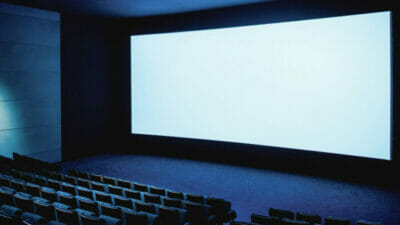
Step 2 of How to project laptop screen to wall without projector. The projector is an essential part of the conference room. It allows for presentations and slide shows to be shown in large rooms.
This is particularly useful in larger meetings, and it can be used as a teaching tool. To reduce the amount of light required to see a slide show or presentation, turn off all the lights except the ones in the projector. If it’s a small room, the same thing can be done by just turning off the projector light instead of the room light.
Projectors are used to project content on a screen or on a wall. With projection technology, it is possible to adjust the light emitted from the projector to provide better illumination of the screen.
When the room is too bright for your audience, it’s important to adjust the projector to minimize the amount of light that enters the room.
When I started out with this project, I didn’t even consider the amount of light inside. The projector I chose is rated at a respectable 3000 lumens.
After putting the light meter next to my computer monitor, I realized that only 2.5% of the monitor is visible, while the projector is shining a whole lot of light on the wall behind me.
It’s not bright, but I’m sure it’s enough to read from a comfortable distance. I’ll have to experiment with different lamps to see if I can turn the brightness down without compromising too much of the image.
Also Read. How to Make a Stolen Laptop Untraceable | 8 Best Ways
3. Now include the magnifying Lens
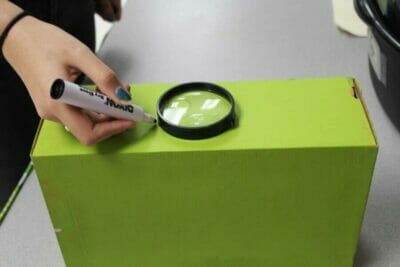
As we know, images are often projected onto a screen, and the image itself doesn’t change. This causes the same objects to be projected onto the screen multiple times.
The best way to overcome this problem is to add a lens or filter to the projector. These filters will alter the light that hits the screen, and thus make the image appear sharper and more detailed.
For most projectors, color is essential. So adding a color filter to your presentation slides helps people focus on the content and see what you want them to see.
The best way to add a filter is to find one with the best color gamut. The difference between the color gamut a projector has and the color gamut of the screen (or other display) you’re projecting to makes all the difference in the world.
In order to add the lens for the projector, you need to open the dialog box in Projector Designer for the first time. To add the lens, click on the Lenses tab and select Projector Designer Lens.
Then, drag the lens you want onto the camera. Select Projector Designer Lens from the list and click OK to save your changes.
5. Cut a Hole in the box for the Phone
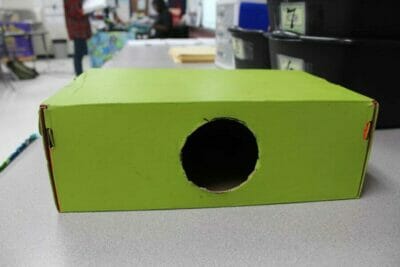
Step 4 of How to project laptop screen to wall without projector. This is a very important part when you are trying to make a projection on the wall without a projector you need to make a hole in the box, Hole size is very important because all focus and intensity will depend on this hole, and this will do you in the second box, by making a hole you can adjust the small box into a large box.
the procedure of making the hole is this fit the small box into the large box and then cut the small size of the box with the size of your phone, here you should note that always use a smartphone and your phone should fit in the box and your second or large box should not use a material which will be a source of reflection because it will affect the focus and intensity of your projector.
6. Arrange and adjust all remaining parts for projection
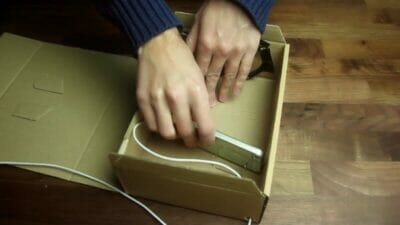
At this stage of the process, your projector is ready to use now you need to connect all things in the arrangement and your projection will be ready to view on the wall without a projector.
But one more thing you need to keep in mind cut of the box should be the accurate and exact size of the lens of the projection otherwise your magnifying lens will be covered and your view will be cut off the screen.
7. Fit the Laptop or Phone for the view on the wall
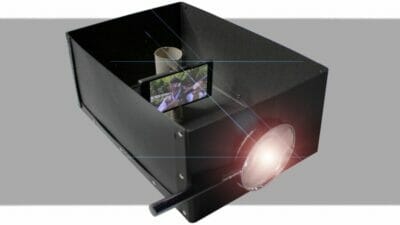
When everything is ready to use, just put your laptop on the large box and start viewing your presentation or movie on the wall do not change and disturb the position of the laptop as well as the position of the laptop otherwise you will lose the projection on the wall.
If you will for the projection you can also use the small box to get a projection on the wall without a projector. at the first your video will be inverse, so you need to reflect it in the right position your laptop screen should be inverted. for you will press Ctrl + R until on the wall your projection image comes to the right position.
Also Read. How to check a Laptop battery with a Multimeter |5 Ways|
8. Adjust the (Focus if needed)

Actually, this is not a real projector so the image of the project could be blurred and could be of bad quality.
You need to set it with a good result you need to adjust the focus, for this one way, your picture quality should be good.
And for second your picture quality can be set when your projector could be close to the wall and image size will be reduced for better image quality use always high-quality pictures.
Using Flashlight as Projector
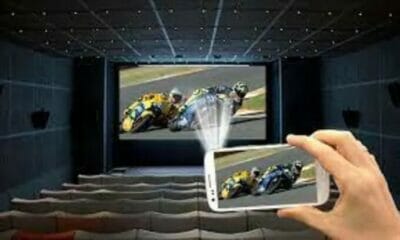
There are two lights at the same time on the wall one for the actual screen view of the laptop through the magnifying lens and the second light will be the flashlight that will help you to view the projection on the wall of your laptop screen.
Conclusion
In conclusion, The projector is an interesting device that creates images on a screen by projecting light onto a surface. The projector is an amazing device for creating presentations, which is why it is very useful for business professionals.
But, it is also heavy, has a large size, and has a high price tag. The Laptop Screen Projector is an interesting device that creates images on a wall by projecting light onto a surface.
The projector is an amazing device for creating presentations, which is why it is very useful for business professionals. But, it is also light, has a small size, and has a low price tag. This projector can project a picture on a wall without using a projector.
I hope this will help you!
